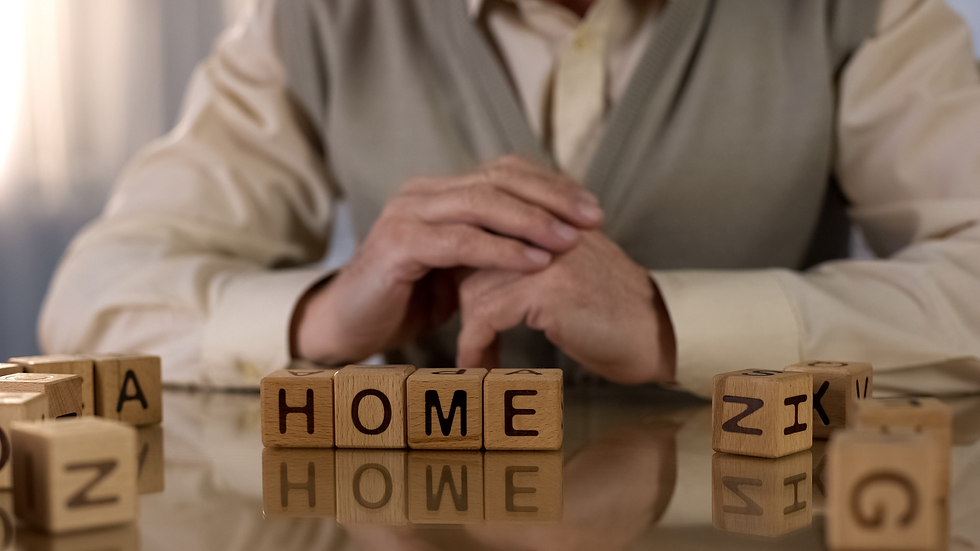Falls
- NHS
- Mar 5, 2021
- 3 min read
Updated: Jul 12, 2023
Anyone can have a fall, but older people are more vulnerable and likely to fall, especially if they have a long-term health condition.
Falls are a common, but often overlooked, cause of injury. Around 1 in 3 adults over 65 who live at home will have at least one fall a year, and about half of these will have more frequent falls.
Most falls do not result in serious injury. But there is always a risk that a fall could lead to broken bones, and it can cause the person to lose confidence, become withdrawn, and feel as if they have lost their independence.
What should I do if I fall?
If you have a fall, it is important to keep calm. If you are not hurt and you feel strong enough to get up, do not get up quickly.
Roll on to your hands and knees and look for a stable piece of furniture, such as a chair or bed.
Hold on to the furniture with both hands to support yourself and, when you feel ready, slowly get up. Sit down and rest for a while before carrying on with your daily activities.
If you're hurt or unable to get up, try to get someone's attention by calling out for help, banging on the wall or floor, or using your aid call button (if you have one). If possible, crawl to a telephone and dial 999 to ask for an ambulance.
Try to reach something warm, such as a blanket or dressing gown, to put over you, particularly your legs and feet.
Stay as comfortable as possible and try to change your position at least once every half an hour or so.
What causes a fall?
The natural ageing process means that older people have an increased risk of having a fall.
In the UK, falls are the most common cause of injury related deaths in people over the age of 75.
Older people are more likely to have a fall because they may have:
balance problems and muscle weakness
poor vision
a long-term health condition, such as heart disease, dementia or low blood pressure which can lead to dizziness and a brief loss of consciousness
A fall is also more likely to happen if:
floors are wet, such as in the bathroom, or recently polished
the lighting in the room is dim
rugs or carpets are not properly secured
the person reaches for storage areas, such as a cupboard, or is going downstairs
the person is rushing to get to the toilet during the day or at night
Another common cause of falls, particularly among older men, is falling from a ladder while carrying out home maintenance work.
Preventing a fall
There are several simple measures that can help prevent falls in the home.
For example:
using non-slip mats in the bathroom
mopping up spills to prevent wet, slippery floors
ensuring all rooms, passages and staircases are well lit
removing clutter
getting help lifting or moving items that are heavy or difficult to lift
The charity Age UK has more advice about how to make tasks easier around the home.
Healthcare professionals take falls in older people very seriously because of the huge consequences they can have for the health and wellbeing of this group.
As a result, there is a great deal of help and support available for older people, and it's worth asking your GP about the various options.
Your GP may carry out some simple tests to check your balance. They can also review any medicines you are taking in case their side effects may increase your risk of falling.
Article taken from the NHS.





Comments